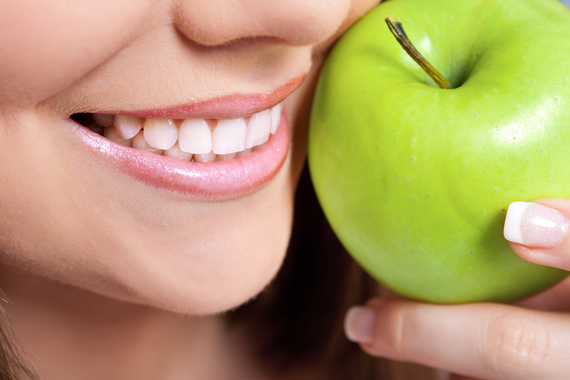Screenshot: Flickr
It is unanimously acknowledged by most people that any kind of dental work can be a nerve-wracking experience for anyone. Perhaps this is the reason behind rescheduling our pre-fixed six-month dental visits unless we find ourselves cringing in the office of the dentist. There is lot of stress and anxiety which surrounds our dental health, and this has given birth to a hell lot of myths which increase our dental woes. Unlike serious conditions like heart diseases, ALS, cancer and Type 2 diabetes which grab the headlines, the relationship between oral health and overall health is often forgotten by most people. In fact oral health is the most neglected part of our health and that's why we don't see too many headlines due to problems regarding tooth.
If you believe in the myths associated with tooth decay, you will probably not be able to take the right steps to take care of them. Hence, it is high time that you know the facts so that you can start taking care of your tooth. Read on to know the list to know about the myths and facts on healthy teeth.
Myth #1: Sugar is the main thing that causes cavities
Fact: Well, sugar is not always the main thing that causes tooth decay but yes it is true that the acid produced due to the bacteria in your mouth is due to the cause of cavities, as per the American Dental Association. Any carbohydrate that you eat can start off this same process and this may include sugar and even other foods like potatoes, rice, fruits, bread and vegetables.
Myth #2: White teeth always means healthy teeth
Fact: No, this is not always true. Your teeth may be white as a pearl but that doesn't show whether or not there's infection or cavities in between your teeth. Hence pure white teeth, as white as milk can't be considered equivalent to healthy teeth. People with healthy teeth may have darker teeth color than the other person. With age, the color of teeth changes and this is also true with teeth when they start breaking down.
Myth #3: Bleaching can have a detrimental impact on your teeth
Fact: Of late, bleaching has emerged as one of the most popular service which is being used by people who are craving for whiter smiles in a safer and faster method. Before 1990, the materials that were used in bleaching your teeth were truly acidic which could break down the enamel of your tooth. But nowadays, the bleach materials are PH neutral and they don't cause any harm to the root or enamel of your tooth. You simply oxidize your teeth when you bleach them and hence light refracts more easily through the enamel.
Myth #4: Gum disease is not very common
Fact: This is a big myth, as gum diseases are just too common nowadays. As per a study by the CDC or the Centers for Disease Control and Prevention, around 50% of adults above the age of 30 and more have some kind of gum disease. With age, people become more and more vulnerable to infections including those that cause decay in the gums. 65% of adults above the age of 65 and more have some moderate or severe type of gum disease. Hence, you can well understand how much common gum diseases are.
Myth #5: You need to brush after every meal to keep your tooth fine
Fact: In order to protect your teeth from decay, you actually have to get rid of leftover food as soon as possible. The human mouth is blessed with a one-two punch to defend itself among which one is the tooth enamel which is the hardest substance in the human body and the other is saliva. Hence, it is not always needed that you brush after every meal but you should drink enough water and make sure there's no food stuck inside your mouth.
Myth #6: Placing an aspirin next to your tooth can reduce toothache
Fact: There have been studies which suggested that aspirin could temporarily relieve some amount of toothache that you may be suffering from. However, if the pain is coming from the structure of your tooth, the aspirin needs to enter the blood stream because it is impossible for it to move into the blood stream through the enamel. It is always advised not to take too many aspirin even if you suffer from toothache as it may lead to burning symptoms on your gums.
So, if you're a health conscious person, you should pay more attention towards your teeth as that is often the neglected part of our body.
